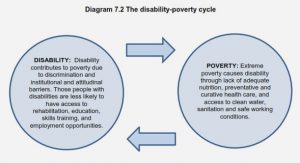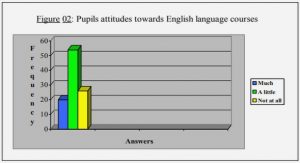Get Complete Project Material File(s) Now! »
Chapter 3 Research Methodology
Introduction
The present study is based on a multi-method research paradigm. Multiple operationalism is a measurement and construct validation technique that is used to enhance research validity and reliability (Johnson, Onwuegbuzie and Turner, 2007). The aim of qualitative research is to study human action from the perspective of the social factors (Babbie and Mouton, 2001). The focus is on the process rather than the outcome of the study, it is conducted in a natural setting and the primary aim is to gain rich, thick descriptions and understandings of actions and events (Babbie and Mouton, 2001). This ex-ploratory study is conducted to satisfy the researchers curiosity and desire for a better understanding of the psychological phenomena of traumatic e ects and to explicate the central concepts and constructs of the study (Babbie and Mouton, 2001).
The ethnographic design ensued because the information was derived from direct observation of behaviour and the subjective experiences of the researcher (Babbie and Mouton, 2001). A particular culture is being explored from a native’s perspective and learning of the experiences on other members of the same culture ensues. The method of triangulation is used to consolidate all the information obtained during the research process. The aim is to enhance validity and reliability of this study (Babbie and Mouton, 2001).
Qualitative Research
Qualitative research is used to gain insight into people’s attitudes, behaviours, value systems, concerns, motivations, aspirations, culture or lifestyles. It is used to inform communication and research. In-depth interviews, content analysis, ethnography, evaluation and semiotics are among the many formal approaches that are used, but qualitative research also involves the analysis of any unstructured material, including naturalistic observations and subjective experiences.
The qualitative perspective is a reasonable approach when the researcher knows in advance about the important variables (TerreBlanche, Durrheim and Painter, 1999). The ontological approach facilitates the interaction between people and their experiences in order to subjectively appreciate the nuances in their narra-tives. Their epistemology informs our methods of data collection and analysis. Most of the research pertaining to the psychological e ects of trauma on health care professionals, have been conducted through qualitative analysis. This is an interesting approach as it facilitates the extraction of rich descriptions and subjective experiences of the individuals, without prescribing a rigid structure of interaction. The method used to conduct research plays an important role in addressing the issue of secondary trauma. If research was conducive to the client’s best interest, then a harmonic resonance between the story of the par-ticipant and the life experiences of the researcher can facilitate self-care for the researcher when researching trauma (Connolly and Reilly, 2007).
In fact, qualitative research is more than just a method, it is a particular approach to inquiry that is based on a particular set of assumptions about how knowledge is produced and about the nature of the reality itself. Qualitative research takes the position that it isimportant to discover what is \real » (in the sense of objectively veri able truth) than it is to understand what contributes to people’s subjective understanding of reality. For this reason, the qualitative research aims to build an understanding of people’s \lived » experience, discovering how people interpret the world around them and how this in uences their actions (Connolly and Reilly, 2007).
The principle of contextual understanding facilitates a vivid impression of so-cial interaction undertaken by individuals. In order to understand human phenomena in this context, the application of qualitative methodology is the most appropriate for the present research (TerreBlanche et al., 1999). In or-der for qualitative researchers to understand their participants perspective, they need to embrace the reality of their participants. The content obtained from the contextual setting of the participants provides for a comprehensive description for interpretation and analysis.
In qualitative research the researcher acts as the research instrument, and data are typically viewed through the lens of both the study participant contributing the data and the researcher analyzing the data (Connolly and Reilly, 2007). Risks are inevitable for the researcher and this is supported by a number of studies. Undertaking research can pose risks to researchers as well, therefore a grounded theory study involving a range of researchers who had undertaken qualitative health research on a sensitive topic was completed (Dickson-Swift, James, Kippen and Liamputtong, 2008)(Dickson-Swift et al., 2008). Training, preparation, and supervision must be taken into account so that the risk to researchers can be minimized.
Ethnographic Study of the E ects of Trauma
The ethnographic approach examines behaviour that takes place within speci c social situations, including behaviour that is shaped and constrained by these situations. People’s understanding and interpretation of their experiences are contextually explored (Wilson and Chaddha, 2009). Since theory plays an inductive role in ethnographic research, the theoretical insights inform the interpretation of data uncovered in the context of discovery. In the process the ethnographer integrates new empirical ndings with theoretical arguments not by testing prior theoretically driven hypotheses but in using his or her theoretical knowledge to make sense of the data uncovered in the eld research (Wilson and Chaddha, 2009). Some ethnographic studies that incorporate theory into research are neither purely deductive nor inductive, but combine elements of both.
James (1897) stated that we live in ‘a pluralistic restless universe in which no single point of view can ever take in the whole scene’. Consequently our world exhibits an ‘impressive and irresistible mixture of su ciencies, tight completeness, order, recurrences which make possible prediction and control, and singularities, ambiguities, uncertain possibilities, processes going on to consequences yet indeterminate’ (Dewey, 1958).
Introduction and Genesis of Ethnographic Research
Ethnography has its roots in anthropology and sociology. Ethnography is a social science research approach. It relies heavily on up-close, personal expe-rience and possible participation and not just observation by researchers. The ethnographic focal point may include intensive language and culture learning, intensive study of a single eld or domain, and a blend of historical, observa-tional, and interview methods. Typical ethnographic research employs three kinds of data collection: interviews, observation, and documents. This in turn produces three kinds of data: quotations, descriptions, and excerpts of documents, resulting in one product: narrative description. This narrative often includes charts, diagrams and additional artifacts that help to tell the story (Harris and Johnson, 2000). Ethnographic methods can give shape to new constructs or paradigms.
There has been a shift in the application of ethnographic studies. Presently ethnographic studies are also conducted in organizations and communities of all kinds. Ethnographers study schooling, public health, rural and urban devel-opment, consumers and consumer goods and any human arena. Although it is particularly suited to exploratory research, ethnography also draws on a wide range of both qualitative and quantitative methodologies, moving from \learn-ing » to \testing » while research problems, perspectives, and theories emerge and shift (Agar, 1996).
Ethnography is a descriptive study of a particular human society. Contempo-rary ethnography is based almost entirely on eldwork. The ethnographer lives among the people who are the subject of study for a year or more, learning the local language and participating in everyday life while striving to maintain a degree of objective detachment. He or she usually cultivates close relationships with informants who can provide speci c information on aspects of cultural life. While detailed written notes are the mainstay of eldwork, ethnographers may also use tape recorders, cameras, or video recorders. Contemporary ethnogra-phies have both in uenced and been in uenced by literary theory (Britannica Concise Encyclopedia, 2009).
Ethnography is charged with the ability to bridge structure and agency by infusing abstract categorizations with individual meaning and placing the in-dividual action within its larger social and cultural milieu (Kelemen, 2007). Since the ethnographer is able to provide rich descriptions which can lead to a fuller understanding of di erences and similarities within any context of study.
In line with the process oriented participatory research, the ethnographers closeness to the empirical world via observation and triangulation of subjective experiences, sources and methods is a way to counteract an overemphasis on what people say (Kelemen, 2007).
Triangulation
Triangulation is a combination of di erent methods used to collect data. The combination of di erent methods would give us a clearer picture of the in-dividual’s life and behaviour. Thereby enabling the researcher to observe a respondent’s behaviour and make notes about it using a form of participant observation. The researcher could also question the interviewee about their actions and behaviour in certain contextual situations (Olsen, 2009) .
Triangulation is derived from a technique used by surveyors in their work. The researcher takes on the role of a surveyor in an attempt to validate the respondents responses (Olsen, 2009):
If a respondent claims they always do something in a given situation, we have to take this on trust.
If we could observe them this would give us a way of checking the accu-racy of their claim. Whilst this is not as reliable a way of measuring the accuracy of something as the technique used by a surveyor, it does give us some measure of control over the accuracy of the data we collect.
The concept of triangulation can be applied to both (i) the way we use various di erent methods in the research process, methodological triangulation and the way we can combine various theoretical perspectives in our research, theoretical triangulation (Olsen, 2004).
In the present research, triangulation was achieved through two routes. The rst route entailed gathering collaborative information from past research and exploring the e ects of vicarious trauma and compassion fatigue in the present study. The second route involved using personal, subjective experiences to-gether with the experiences of the interviewees in an attempt to gain a thick description of the psychological e ects of trauma.
Research Approach
Introduction
The psychological e ects of working with traumatized clients have been ob-served over time. The main focus of most research centered on counsellors working with victims of natural disasters, wars and sexual abuse. These stud-ies have focused on the direct victims of trauma and with less attention paid to trauma counsellors, who work with these victims. The e ects of psychological distress on novice trauma counsellors has created a need for further investi-gation. The exploration of the vulnerability to secondary traumatic stress, experienced by this category of health professionals is relatively new.
The key variables and contributory factors of vicarious trauma and compassion fatigue have been highlighted to be signi cant in the development of compas-sion fatigue. According to research these variables are exposure to traumatic material, personal history and empathy. Since this is an exploratory study based on ethnographic principles, I intend to explore the e ects of psychologi-cal trauma and its role in the development of vicarious trauma and compassion fatigue in novice trauma counsellors. Hence, this study seeks to understand the e ects of trauma within the culture of a trauma unit, and to also contribute to a further re nement of the theoretical understanding of the exposure of trauma and the susceptibility to developing vicarious trauma and compassion fatigue.
This chapter focuses on exploring the psychological e ects of trauma from an ethnographic paradigm. This is an exploratory study that is triangulated against my experiences (as I was once a part of the trauma team), previous research and narrative experiences of the participants.
Aims of the Study
This study focuses on novice trauma counsellors and their experiences of trauma. The study aims to explore the e ects of vicarious trauma and com-passion fatigue within the culture of a trauma unit. I want to explore the interrelationship within the complex network of the trauma unit. The study attempts to relate experiences and the e ects of secondary trauma from a na-tive’s perspective, thereby applying an ethnographic modality of relatedness. The research design for the study will be based on ethnography and exploration of narratives. The emergence of themes during the narratives will provide rich descriptions of subjective experiences.
Selection of Participants
The selection of the participants will be purposive, keeping in line with qualita-tive research. The participants have to be able to provide clear descriptions of their experiences and be willing to re ect on and delve into their past, thereby revealing sensitive and personal information in the process.
I have approached the trauma counselling unit at a local hospital in order to obtain permission to recruit novice trauma counsellors to participate in this exploratory study. As I have completed my trauma counselling internship with this trauma team, I have developed trust with the gatekeepers of the hospital and access to this organization will not present di culties, as the supervisor is familiar with me.
The training programme that I participated in, was instituted at a govern-ment hospital in Pretoria, Gauteng and it o ered an internship programme for registering as a trauma counsellor or pastoral counsellor. The internship programme lasts between six months and eighteen months. The students need to complete forty hours per week, full time training or the compulsory nine hundred and sixty hours need to be completed over the course of a year. Often the programme runs for a longer period, depending on the intern’s emotional and psychological functioning. The internship programme is very exible and is tailored to suit every intern’s needs.
In accordance with the above purpose of the study, the following criteria will be used for selecting participants for the research:
Two novice counsellors and one experienced counsellor will be approached and asked if they would be willing to participate in this study.
The novice counsellors must still be in training or just completed training, not longer than six months prior to being interviewed.
They must be completing their internship in trauma counselling in the trauma unit.
They must have completed over eight hundred hours of counselling.
I will contact each of the prospective participants in order to arrange for a suit-able time and place to conduct the interviews. The purpose of the research and the nature of the investigation will then be explained to the participant. Permission will be solicited from the participants to use the interview for re-search purposes. A written consent will be obtained from the participants and they will be reassured that their identities will remain con dential. Permission to tape the session will also be acquired. These authorization forms will also be led in a safe place.
Research Design
Since I was also a part of this particular culture for two years, the interviews will be conducted in accordance with the training of this system. In-depth interviews will be the data collection tool used to procure and capture the clients narratives and translate it within the ethnographic framework of my experience. The interviews will be conducted in the form of a conversation between peers rather than a structured and formal exchange of questions and answers. It will be a dialogue of shared experiences.
I will start the interview with the following invitation:
Perhaps we can talk about your background and previous vocation.
This can then lead up to probes such as:
What sparked your interest in trauma counselling?
How did you hear about the training and this institution? Have you been exposed to trauma counselling in the past? How do you feel about being part of this research?
What does this interview mean to you?
Are you able to describe your feelings after a counselling session?
Perhaps you can depict any particular category of cases, you avoid or are attracted to?
Can you illustrate any particular incident that made you question your choice of trauma counselling
Have you ever taken leave for an extended period of time?
Can you illustrate the e ects of your experiences with trauma?
Can we explore the events that necessitated the break from counselling? Can you describe any unusual incidences (unusual for you), that occurred before you decided to take leave?
Can we explore your support systems?
What meaning do you attach to support systems?
How do you feel about availability or lack thereof support systems? What role does your supervisor play in your experiences?
What is your impression of the current training?
What are the di erences you have noted in yourself ? What meaning do you attach your changes, if any?
As the interview progresses, I will use statements, questions and descriptions to clarify any discrepancies and uncertainties, in order to provoke the participant to elaborate on their depictions and provide a richer narration.
The aim is to elicit a su ciently rich archive of experiences and history ac-quired in this particular culture. This will facilitate exposure of the psycho-logical e ects within the eld of trauma counselling, and provide a basis for future enhancements of present systems in place. The purpose of this research is to provide a platform for further development in highlighting the conse-quences of being continuously exposed to trauma, as well as incorporating and implementing training and resilient programs on a regular basis
Data Analysis
This section of the research has to conform to the process of content, context, structure and meaning to be imposed on the data collected during the research. Data will be analyzed in terms of interviews, observations and documents. This information will be triangulated together with my personal experiences in order to provide a rich understanding of the narratives in this particular culture.
Acknowledgements
Abstract
1 Rationale for the Study
1.1 Introduction
1.2 My Narrative
1.3 Discussion
1.4 Conclusion
1.5 Presentation
2 Literature Review and Theoretical Background
2.1 Introduction
2.2 The Psychological Eects of Secondary Trauma
2.3 Vicarious Trauma
2.4 Compassion Fatigue
2.5 Preventing Secondary Trauma
2.6 Conclusion
3 Research Methodology
3.1 Introduction
3.2 Qualitative Research
3.3 Ethnographic Study of the Eects of Trauma
3.4 Research Approach
3.5 Conclusion
4 Hope: A Leap Of Faith
4.1 Introduction
4.2 My Experience of Hope
4.3 Hope’s Experiences as a Novice Trauma Counsellor
4.4 Feelings of Ineectiveness
4.5 Eects of Trauma
4.6 Hope’s Worldview
4.7 The Role of Life Experience in Training
4.8 The Role of Hope’s Supervisor
4.9 Coping Skills and Mechanisms
4.10 The `AHA’ Moment for Hope
4.11 Discussion
4.12 My Re ections of the Process
5 Alice: A Journey Of Self Discovery
5.1 Introduction
5.2 My Experience of Alice
5.3 Alice’s Experiences as a Novice Trauma Counsellor
5.4 Feeling’s of Ineectiveness
5.5 Eects on Personal Relationships
5.6 Alice’s Worldview
5.7 The Role of the Supervisor
5.8 Coping Skills and Mechanisms
5.9 The Role of Life Experience in Training
5.10 The `Aha’ Moment
5.11 Discussion
6 Brett: A Passion for Healing
6.1 Introduction
6.2 My Experience of Brett
6.3 Brett’s Entrance Into Trauma Counselling and his Impressions of the Internship Programme
6.4 The Eects of Trauma
6.5 Feeling’s of Overwhelmedness
6.6 Brett’s Worldview
6.7 The Role of Supervision
6.8 Coping Skills and Mechanisms
6.9 The Role of Life Experience and Training
6.10 The `Aha’ Moment for Brett
6.11 Discussion
7 Conclusion and Recommendation
7.1 Introduction
7.2 Evaluation of the Study
7.3 Vicarious Trauma and Compassion Fatigue
7.4 Conclusion
7.5 Limitations of the Study
7.6 Recommendations
References
GET THE COMPLETE PROJECT
EXPLORING THE PSYCHOLOGICAL EFFECTS OF TRAUMA COUNSELLING ON NOVICE TRAUMA COUNSELLORS






